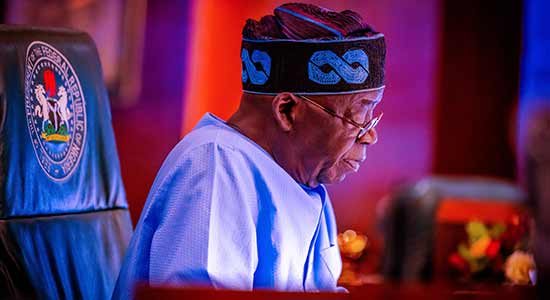From Juliana Taiwo-Obalonye, Abuja
President Bola Tinubu has decided to proceed with the tax reform bills currently before the National Assembly, despite a recommendation from the National Economic Council (NEC) to withdraw them for further consultations.
The NEC, led by Vice President Kashim Shettima, on Thursday expressed concerns about the need for broader consensus among stakeholders, particularly following opposition from the Northern Governors Forum.
NEC underscored that miscommunication surrounding the reforms had contributed to unrest among various stakeholders.
The NEC’s recommendation came after significant pushback regarding the proposed derivation-based model for Value Added Tax (VAT) distribution, which Northern governors argue would disadvantage their states.
In a statement by his spokesman, Bayo Onanuga, Tinubu asked NEC to allow the process run its full course.
“President Bola Tinubu has received the National Economic Council’s recommendation that the tax reform bills already sent to the National Assembly be withdrawn for further consultation.
“President Tinubu commends the National Economic Council members, especially Vice President Kashim Shettima and the 36 state governors, for their advice. He believes that the legislative process, which has already begun, provides an opportunity for inputs and necessary changes without withdrawing the bills from the National Assembly.
“While urging the NEC to allow the process to take its full course, President Tinubu welcomes further consultations and engagement with key stakeholders to address any reservations about the bills while the National Assembly considers them for passage.”
President Tinubu said further imputes could be made during public hearings at parliament, explaining that the tax committee which put up the proposal consulted widely.
“When President Tinubu set up the Presidential Committee on Tax and Fiscal Policy Reform in August 2023, he had only one objective: to reposition the economy for better productivity and efficiency and make the operating environment for investment and businesses more conducive. This objective remains more critical even today than ever before.
“The committee worked for over a year and received inputs from various segments of society across the geopolitical zones, including trade associations, professional bodies, different ministries and government agencies, governors, traders, students, business owners, and the organised private sector.
“The tax reform bills that emerged were distilled from the extensive work of the Presidential Committee,” the statement noted.”
